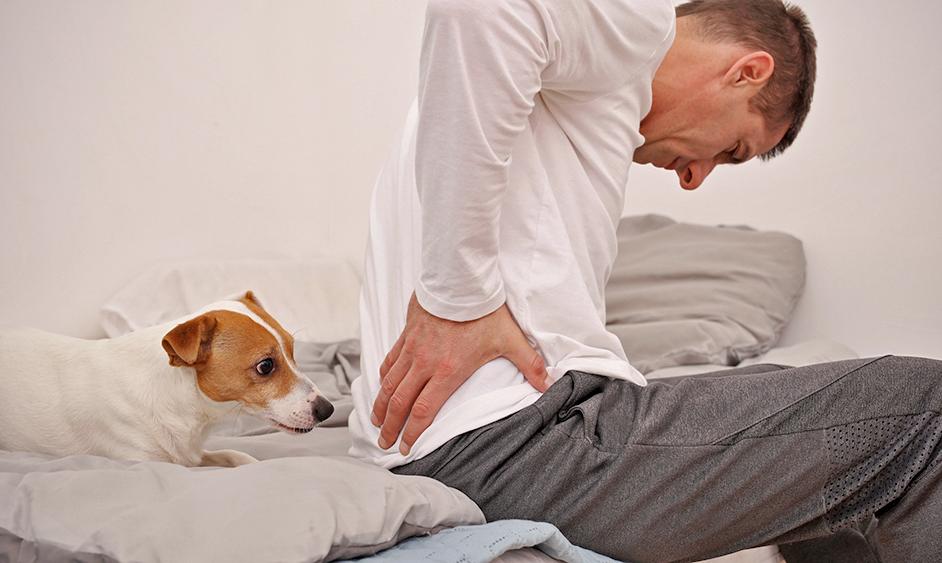
Our researcher explains why ice baths and massage therapy ease the mind more than sore muscles, and shares tricks to minimize the dreaded DOMS.
Staying fit is an important part of overall health, but many of us are keen to avoid the soreness and stiffness that can follow a good workout. Dr. Chris Napier demystifies some popular muscle recovery methods, and gives us the low-down on science-based approaches that could make your new exercise routine more enjoyable and effective.
Q: What causes muscle soreness?
A: There is a myth that muscle soreness is due to a buildup of lactate or lactic acid, but it is actually caused by microscopic damage to muscles that can happen after any sudden increase or change in exercise habits.
Q: What is DOMS and how can I prevent it?
A: Delayed Onset Muscle Soreness, or DOMS, is muscle soreness that occurs one to two days after doing an activity, and often peaks on the second day. Changes in your routine, such as trying a new exercise or doing a harder workout than usual can cause it and lead to some pain, weakness, inflammation, soreness and stiffness.
While there is no set way to effectively prevent DOMS, maintaining a regular level of fitness and gradually increasing the intensity of a new exercise program can reduce its intensity. Try to keep a regular routine and monitor your exercise intensity and duration so that you do not have large increases. When increasing the intensity of your fitness routine, make sure to build in rest days or lower the intensity of your workouts for a couple of days if you experience DOMS.
Q: Is muscle soreness ever a cause for concern?
A: You should seek medical advice if pain persists for more than three to five days; if the pain intensity is debilitating and affecting your daily activities; or if you recall a sudden or sharp pain.
Q: How do elite athletes prevent perpetual DOMS?
A: Elite athletes are just as prone to muscle soreness; however, they often have a baseline of fitness and more of a fitness routine that avoids the swings in exercise duration and intensity associated with DOMS. Elite athletes have also experienced the feeling of muscle soreness so often in their lives that they may not be as alarmed by it, or perhaps have a higher pain tolerance for it. The mind plays a large role here in moderating feelings of muscle pain and soreness.
Q: Can ice baths, massage therapy or other tools and techniques help prevent muscle soreness?
A: The evidence is pretty murky around recovery methods for muscle soreness, and a lot of this stems from the placebo or psychological effect. Most research studies show that there is no recovery method that will improve muscle soreness, including such things as ice baths, massage, compression garments, cryosaunas, electrical stimulation, foam rolling, percussive therapy/theraguns or stretching.
That said, the belief effect is huge. In a well-known study, some athletes were asked to soak in a warm bath that they were told contained a so-called recovery solution—but really only contained bath soap—while others soaked in an ice bath or warm water. Even though none of the baths contained a recovery solution, athletes in the recovery solution bath recovered faster than those in the warm bath. This shows that our expectations can often dictate our perceived recovery. As such, if you really believe in the effectiveness of something, it may indeed have that effect.
Q: Can stretching prevent muscle soreness?
A: Research shows that static stretching—when you hold a posture for a longer period of time without moving—does not reduce muscle soreness regardless of when you do it, and does not improve performance or prevent injury. In fact, static stretching before a workout may increase your risk of injury. There is no harm in doing it after an activity, though, and it may work to slightly lengthen muscles if that is your goal.
On the other hand, dynamic stretching, such as swinging your leg forwards and backwards several times to stretch out your hamstrings, is recommended before a workout to get blood flowing, increase mobility and warm up your body temperature. It will not affect muscle soreness, but may help to prevent a traumatic injury, such as a tear.



